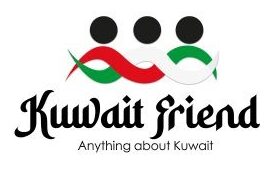The importance of upper Education in Kuwait was recognized earlier than it’s going to be in some parts of the region came as a result of the comparatively early development of the industry in Kuwait and one of the items that Kuwait did was the benefit from that oil revenue to send a really sizable amount of Kuwait’s abroad not just for undergraduate degrees however graduate degrees that’s comparatively distinctive.
For Kuwait, there’s the one terribly large public establishment that incorporates a terribly well-defined role and therefore the society it absolutely was in part but as a result, there was the perception that that establishment would possibly not be ready to serve. The wants of the large number of adolescents within the country that the non-public universities were established and one amongst the items. Now that the country is gazing and considering. However, those non-public institutions ought to be integrated into the total instructional system of the state of Kuwait.
Division of System of Education in Kuwait
Kuwait’s educational system is divided into three levels: elementary, intermediate, and secondary education. All levels take four years to complete. When a kid reaches the age of six, he or she generally attends elementary school. Students will be able to go to the intermediate levels once they have completed their primary schooling. Because secondary education is not covered by government subsidies, free education ends at the intermediate level.
Elementary Education
There is an elementary issue in most of the region that, of course, most of the scholars square measure native Arabic speakers however the planet of Commerce nowadays is conducted in English and so once students return to English language establishments they regularly do not have the amount of English skill that is necessary for fulfillment and so that presents associate initial challenge perhaps a larger challenge although is that the demographics of the region and of Kuwait especially square measure specified.
There will be for the predictable future large numbers of adolescents coming back into the educational system that actually has not yet been ready to arrange sufficiently for that increase in student population thus people believe generally we might say that the best challenge is to satisfy the each the number demands that will be placed on the upper education system then in fact to have an academic system that has the quality that the govt. the general public has the proper to expect.
Vocational Training
Applied education and training options are accessible throughout a Kuwaiti person’s adult life, thanks to the state public authority’s services. It is state policy that all people make use of these changes, not just to satisfy the demand for skilled labor, but also for their own personal development.
Tertiary Education
Kuwait University, the College of Basic Education, and the Higher Institutes for Theater and the Music Arts are the four state-funded higher education institutions in Kuwait. Kuwait University began as a co-educational university in 1966 and has since expanded to include 12 faculties spread over five sites. The Medical School has an excellent, international reputation. By 2014, plans are well underway to build the new, ultra-modern University City.
Kuwait University, the College of Basic Education, and the Higher Institutes for Theater and the Music Arts are the four state-funded higher education institutions in Kuwait. Kuwait University began as a co-educational university in 1966 and has since expanded to include 12 faculties spread over five sites. The Medical School has an excellent, international reputation. By 2014, plans are well underway to build the new, ultra-modern University City.
Most Kuwaitis, on the other hand, do not send their children to public schools. Most likely because they can afford to send their children to private schools, which are often coed and have better facilities. The Bayan Bilingual School, the British School of Kuwait, the American International School, the American School of Kuwait, and the French School are among the most popular schools in Kuwait.
Conclusion
Despite the fact that most families do not take their children to these government-sponsored schools, the government continues to provide large subsidies to private educational institutions. In reality, on top of the land utilized for school facilities and textbooks, the government gives private schools KD 5.6 million every year. Despite the fact that private schools are co-ed, male and female pupils are still separated beginning in the first grade.


